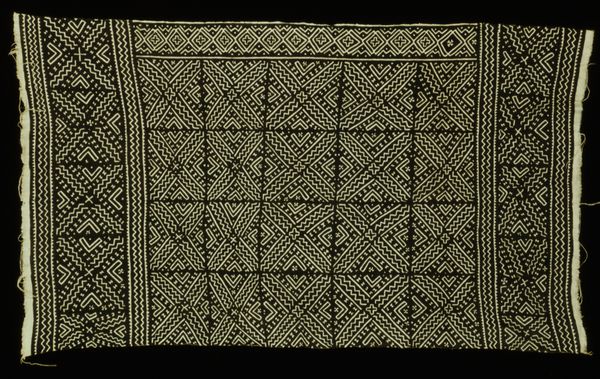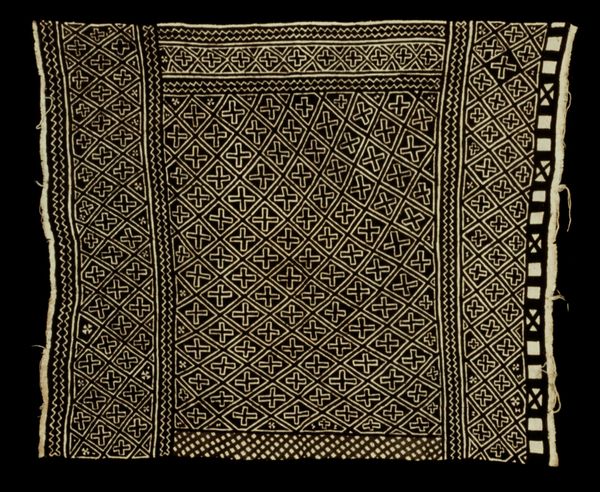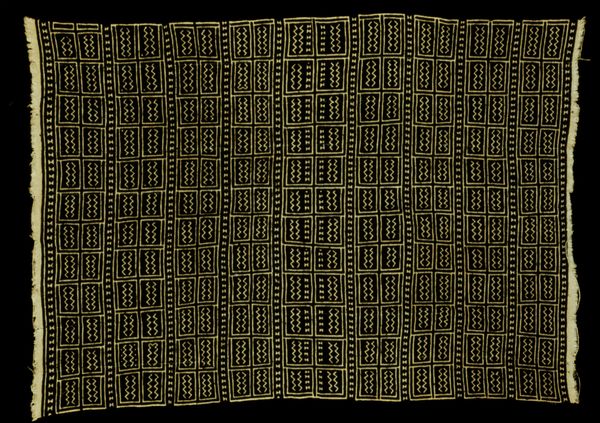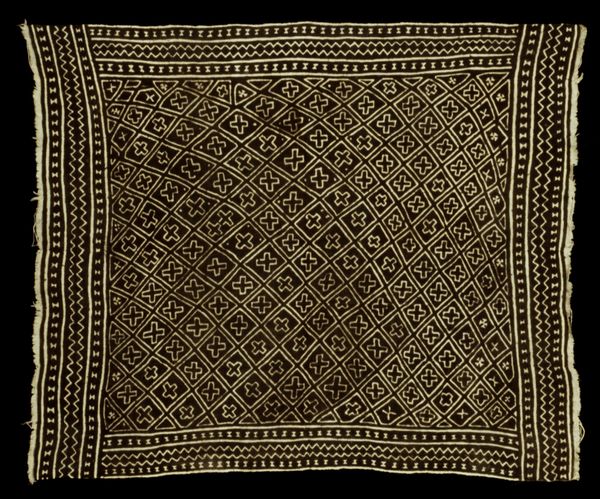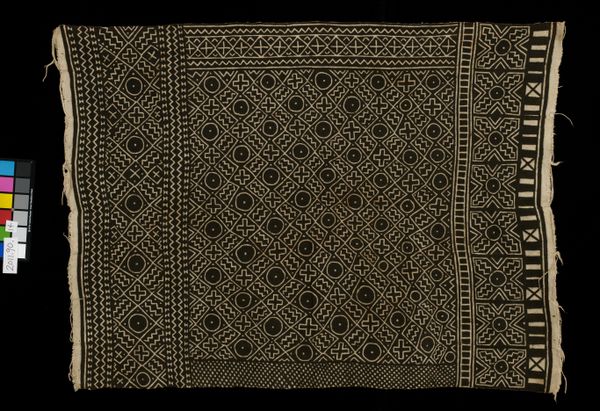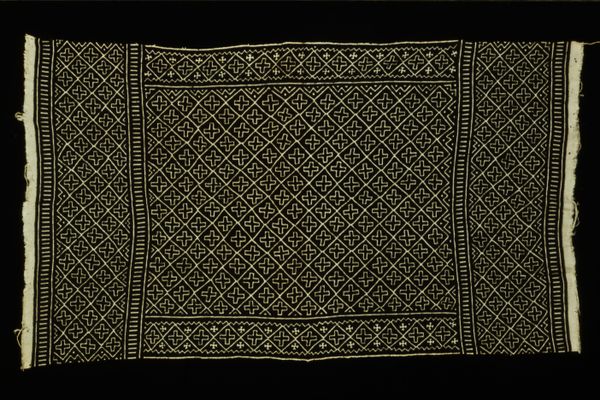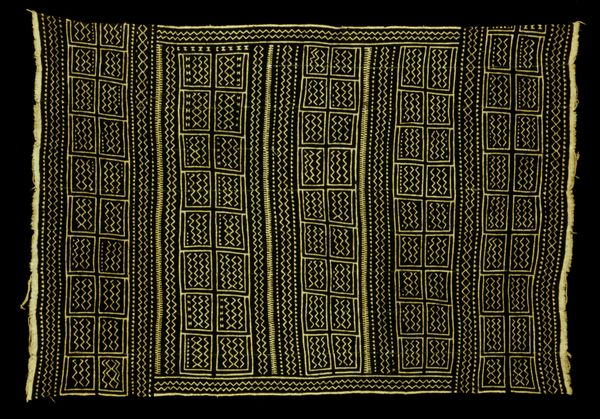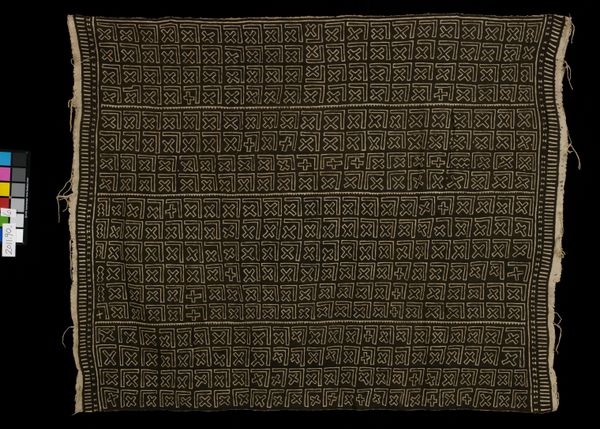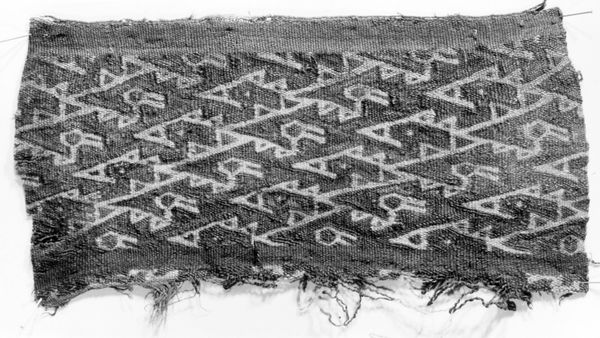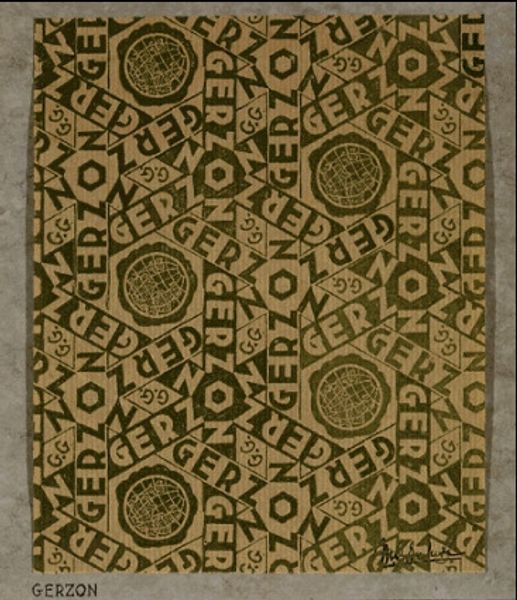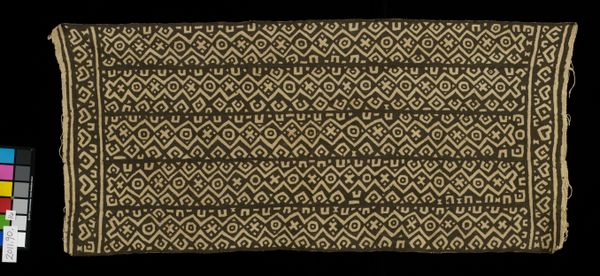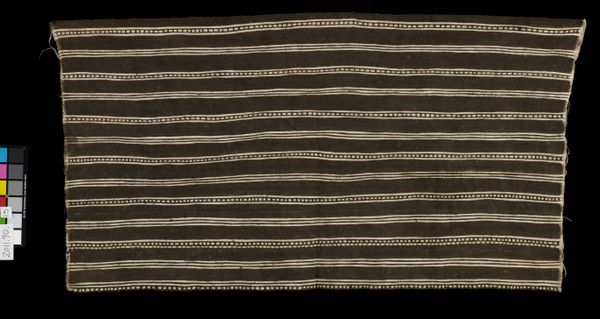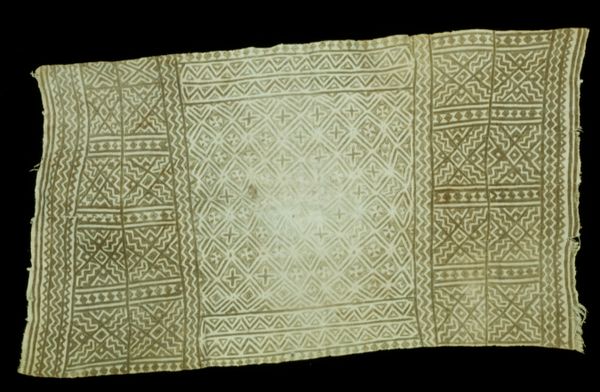
Skirt for a Married Woman c. 20th century
0:00
0:00
textile, cotton
#
african-art
#
textile
#
geometric pattern
#
geometric
#
cotton
Dimensions: 62 1/4 x 35in. (158.1 x 88.9cm)
Copyright: Public Domain
Curator: Standing before us is an exquisite cotton textile titled "Skirt for a Married Woman," created around the 20th century by Guancho Diarra from the village of Kolokani. Editor: My first impression is how graphic it is— stark black cotton meticulously covered in rows and rows of a yellow-toned geometric pattern. It’s simultaneously calming and captivating, isn't it? Curator: Indeed. Its power lies in that intentional repetition. Think about the labor invested! It really elevates it above the label of "craft," forcing us to reconsider that whole hierarchy. Editor: I wonder what it would be like to wear? There's the sheer weight of the cotton, obviously, but then the visual statement of all those carefully embroidered diamonds and plus signs... it proclaims something specific about the wearer, about her status within her community, as a married woman. Curator: The pattern also has a language. It acts like a code; we are privy to the look and feel but perhaps not entirely the symbolic purpose it holds within the community. It's intimate and unknowable to us simultaneously. Editor: Right, we only see the external presentation. So much meaning lies in the materials as well—the cotton sourced, processed, woven, and then embroidered. Each stage tells a story of labor, trade, and perhaps even resistance. Who benefits from this creation, and how does it circulate in a broader economic system? Curator: Those geometric patterns are the interesting part to me, though. You could almost see a connection to early computer punch cards and pattern generation; and maybe it is a kind of code for wealth? Each one precisely built as it works towards a common idea. It's all really amazing and also more than meets the eye. Editor: Definitely food for thought about production and value, on display with such deceptive simplicity. I’m captivated by how such repetitive manual labor might hold quiet moments of individual creative freedom within such strict constraints. Curator: It shifts your perspective, doesn't it? To remember it’s not just pretty cloth but embedded with so many levels of meaning and making.
Comments
No comments
Be the first to comment and join the conversation on the ultimate creative platform.
